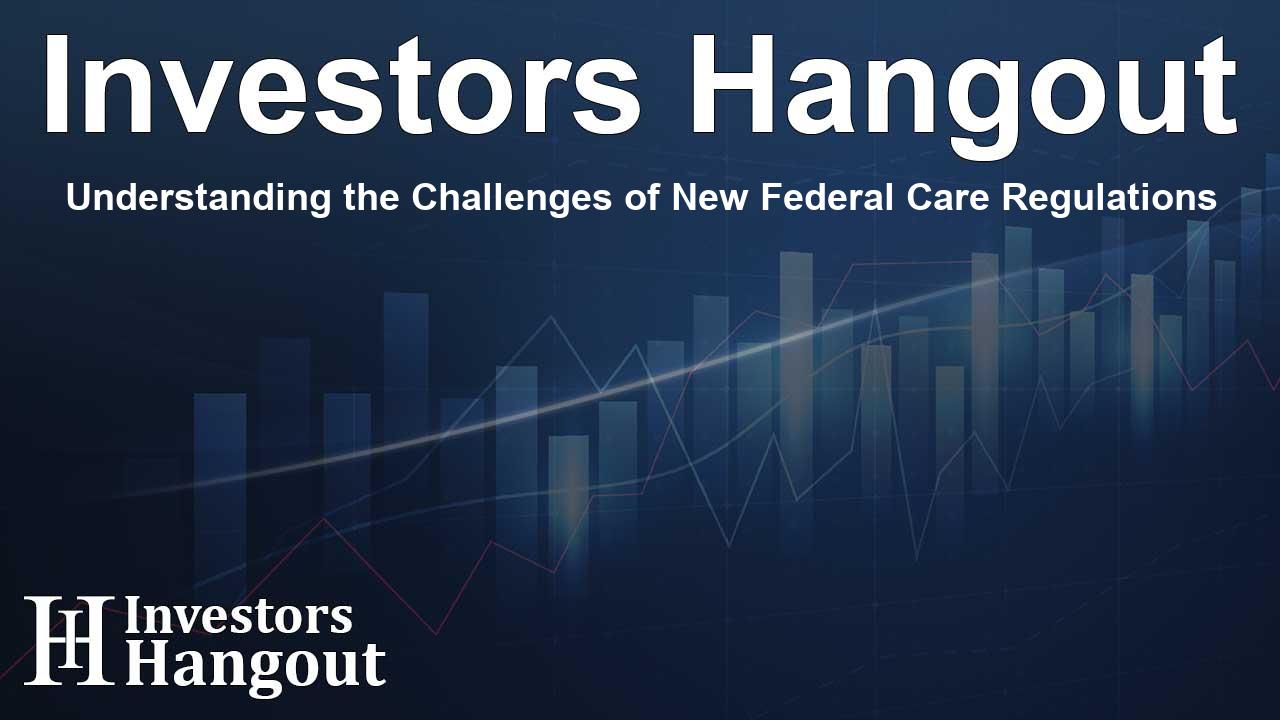Understanding the Challenges of New Federal Care Regulations

Identifying Challenges with New Federal Requirements
As the healthcare landscape continuously evolves, recent initiatives by the Centers for Medicare & Medicaid Services (CMS) are significantly transforming the way home- and community-based services are provided. According to a recent survey conducted by WellSky and the National Association of State Directors of Developmental Disabilities Services (NASDDDS), it is evident that states are gearing up for a variety of challenges as they aim to comply with these new federal guidelines.
Understanding the Access Rule
The newly established Access Rule seeks to enhance access to essential services for Medicaid beneficiaries. Although the intentions of the Access Rule are commendable, implementing these new provisions is anything but straightforward. Many state agencies and service providers find themselves facing numerous obstacles that could impede the effective rollout of these guidelines.
Technological Advancements Needed
A significant portion of the challenges is rooted in the technological upgrades required to meet these new standards. Reports indicate that over 50% of the survey participants expressed that various components of the Access Rule necessitate building, altering, or enhancing their existing data systems. This technological shift entails substantial investment and resource allocation to facilitate smooth transitions and ensure compliance.
Data-Sharing Issues
Another critical aspect highlighted by the survey is the lack of robust data-sharing capabilities among agencies. States are now required to integrate various data sources, such as claims data and Adult Protective Services (APS) information, to accurately track and report critical incidents. Unfortunately, more than 80% of those surveyed rated their current data-sharing practices as either “fair” or “poor”. In addition, nearly 80% of respondents noted that the absence of interagency cooperation poses a significant barrier to compliance.
Concerns About Caregiver Reimbursement
The Access Rule further mandates that 80% of Medicaid reimbursements must be directed to direct care workers. This requirement has raised concerns among service providers regarding the need for additional regulatory guidance from the CMS. Participants pointed out that ensuring compliance not only requires novel technologies but also highlighted deficiencies in current provider compensation data, emphasizing the urgency for clear directives.
The Call for Collaboration
Mary P. Sowers, the executive director of NASDDDS, emphasized the importance of collaboration between state and federal governments in her comments on the survey's findings. As new frameworks and guidance materialize, NASDDDS and its partners are committed to advocating for the voices of their members to ensure that their needs are met through thoughtful and inclusive regulatory processes.
Supporting State Agencies
Participation in the NASDDDS survey gathered insights from 46 directors and staff members representing various state developmental disabilities programs across the country. WellSky took the lead in initiating this vital survey to better understand how state agencies can effectively navigate these new obligations.
Looking Forward
Bill Miller, CEO of WellSky, stated that the findings shed light on the serious challenges clients will face in adapting to the Access Rule. He expressed optimism about supporting clients in achieving the broader goals set forth by the rule, which include promoting greater access to high-quality care and enhancing the overall safety and quality of life for individuals and communities served.
Frequently Asked Questions
What is the purpose of the Access Rule?
The Access Rule aims to improve the accessibility of home- and community-based services for Medicaid beneficiaries, ultimately enhancing the care they receive.
What challenges are states facing?
States are encountering challenges such as the need for new technology, poor data-sharing capabilities, and concerns around direct care worker reimbursement structures.
How has WellSky contributed to this issue?
WellSky initiated and sponsored a survey to assess the readiness of state agencies for the new Access Rule and to find ways to assist them in better compliance.
What are the survey's primary findings?
The survey revealed significant issues related to technology needs, data-sharing shortcomings, and uncertainties regarding direct care reimbursement that must be addressed for successful compliance.
Why is collaboration important?
Collaboration between state and federal agencies is crucial to navigating the complexities of new regulations, ensuring that the needs of states and service providers are met effectively.
About Investors Hangout
Investors Hangout is a leading online stock forum for financial discussion and learning, offering a wide range of free tools and resources. It draws in traders of all levels, who exchange market knowledge, investigate trading tactics, and keep an eye on industry developments in real time. Featuring financial articles, stock message boards, quotes, charts, company profiles, and live news updates. Through cooperative learning and a wealth of informational resources, it helps users from novices creating their first portfolios to experts honing their techniques. Join Investors Hangout today: https://investorshangout.com/
Disclaimer: The content of this article is solely for general informational purposes only; it does not represent legal, financial, or investment advice. Investors Hangout does not offer financial advice; the author is not a licensed financial advisor. Consult a qualified advisor before making any financial or investment decisions based on this article. The author's interpretation of publicly available data shapes the opinions presented here; as a result, they should not be taken as advice to purchase, sell, or hold any securities mentioned or any other investments. The author does not guarantee the accuracy, completeness, or timeliness of any material, providing it "as is." Information and market conditions may change; past performance is not indicative of future outcomes. If any of the material offered here is inaccurate, please contact us for corrections.









